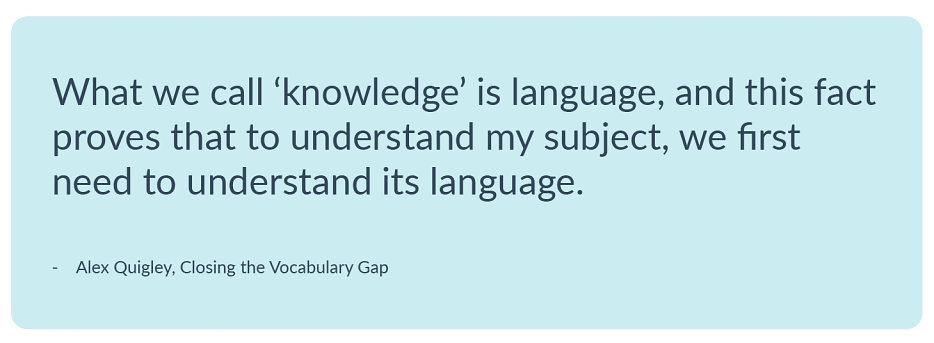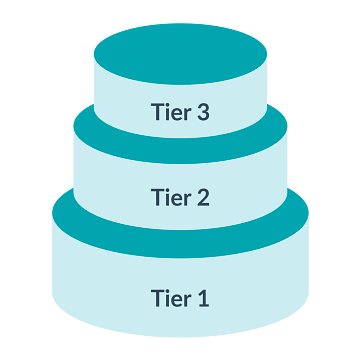This content is for subscribers only. Join for access today.
The Kapow Primary Science scheme includes
Introduction to key vocabulary
Kapow Primary’s progression of vocabulary for Science does not include all the terms children encounter in their lessons; instead, it focuses on the essential words and terms for understanding the subject. These words are carefully selected to help pupils grasp concepts and ideas outlined in the Kapow Primary Science scheme.
Science vocabulary is categorised under three curriculum strands: Working scientifically, Science in action and Scientific knowledge and understanding.
Categorising vocabulary in this way allows for discussion about how the children progress through the strands identified by the Ofsted research review series: Science and how they apply this vocabulary to the various Science key areas.
Consolidating these keywords helps teachers focus on the vocabulary outlined for each year group. This ensures a strong understanding of which words pupils should already be familiar with and those they will encounter in future years.

Receptive vs expressive vocabulary
Some vocabulary is intentionally used in lessons earlier than indicated in this document. For example, ‘investigate’ and ‘insect’ are used in KS1 but appear as key vocabulary in LKS2. Pupils often understand vocabulary receptively before they can confidently use it expressively.
Lesson plans guide teachers to model new vocabulary before it is explicitly taught and before pupils are expected to use it themselves. At times, the teacher may model the use of new words while pupils use synonyms.
The year groups listed in this document indicate when pupils are expected to retain the vocabulary and begin to actively use it in appropriate contexts. The focus is on when vocabulary is used expressively, making it easier for teachers to assess.
Active use of new vocabulary does not necessarily imply complete mastery of each word or concept, as understanding continues to evolve and deepen over time.
This content is for subscribers only. Join for access today.
This refers to the words a
This content is for subscribers only. Join for access today.
This refers to the
Teaching key vocabulary
The ‘three-tiers framework’ (Beck, McKeown & Omanson, 1987) has been used to select the words to include in the vocabulary progression. This framework advises focusing instruction on tier 2 vocabulary for the most productive gains.
Tier 1 words have not been included in the progression unless they take on a more specialised meaning (and would therefore be classed as tier 2 or tier 3 words) within the context of Science.
For example, while ‘bird’ is commonly known as a type of animal, scientifically, it specifically refers to a group of warm-blooded vertebrates with feathers, wings and a beak, most of which can fly. Therefore, these kinds of words have been included in the progression.

Tier 3 vocabulary
These words are rarely used in conversation and are often subject-specific. Textbook glossaries usually focus on tier 3 words, as they can be abstract and require explicit teaching and contextualisation.
Tier 2 vocabulary
These words are more frequently used and appear across the school curriculum and in written texts. Although explicit teaching of tier 2 words is often not planned, this area can be the most productive for vocabulary instruction.
Tier 1 vocabulary
These are the most basic words that typically appear in conversation and are encountered by pupils from an early age. They rarely require explicit teaching, as most pupils are already familiar with them.
This content is for subscribers only. Join for access today.
Each unit hub contains a ‘Key
This content is for subscribers only. Join for access today.
Displaying vocabulary can be a simple
